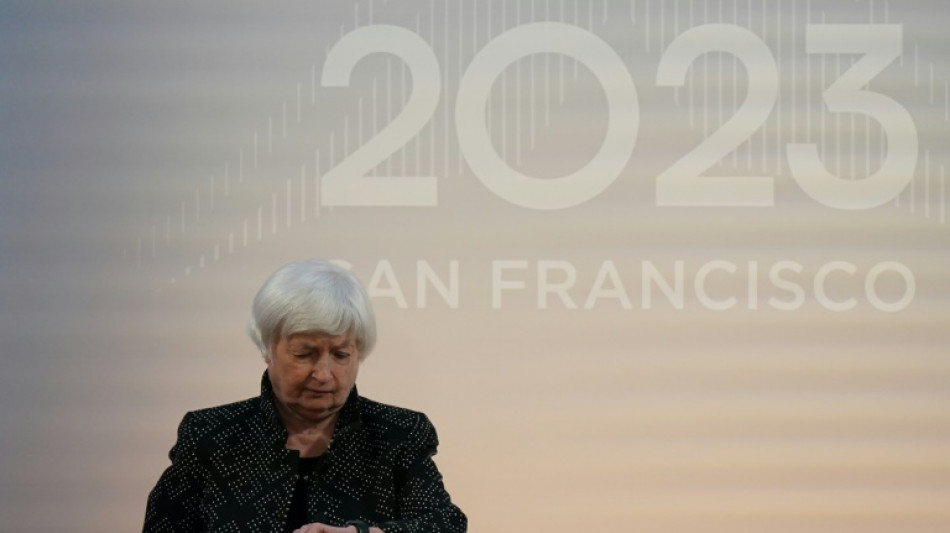
Sustainable development on the menu as APEC finance chiefs meet

Economic development and environmental action need to march hand in hand if the world is to successfully combat global warming, US Treasury Secretary Janet Yellen said Monday at the start of major global meeting.
The transition to sustainable energy needed to prevent catastrophic temperature rises must form part of the effort to secure jobs and growth, she told fellow finance ministers of the 21-member Asia-Pacific Economic Cooperation (APEC) forum.
"We need to further improve our long-term economic outlook by boosting labor supply, innovation, and infrastructure investment, in ways that are also sustainable and reduce inequality," Yellen said at the start of a global gathering in San Francisco.
"We need to put ourselves on a sustainable growth path, one where we safeguard our planet while providing our economies with the clean energy they need to grow."
After several years focused on post-pandemic recovery, 2023 was a "pivotal year" for APEC, said Yellen, a time in which governments could refocus on "advancing fiscal reforms to build our economies over the long run."
But economic development cannot be separated from the immediate need to wean humanity off planet-warming energy sources, she said, noting that less wealthy countries needed help to make the leap.
"We've discussed how to finance efficient and effective energy transitions while supporting the individuals and communities who are most vulnerable," she said, referencing as an example the Just Energy Transition Partnerships (JETP) in Vietnam and Indonesia.
These agreements define conditions for rich countries to commit to financially assisting the energy transition of developing countries.
The JETP for Indonesia, the largest economy in Southeast Asia, was unveiled last year. It provides public and private funding of up to $20 billion in exchange for capping emissions from the electricity sector by 2030 and reaching zero emissions in 2050.
Not all financing systems are equal, Yellen said, noting that the markets for carbon credits need to be examined for ways to improve their integrity.
Carbon credits, which allow companies to offset their CO2 emissions, effectively permitting them to claim a heavily-polluting product is "carbon neutral", are increasingly coming under the microscope, amid claims by critics that they amount to greenwashing.
Finance ministers are meeting in San Francisco until Tuesday, with heads of government of the bloc gathering later in the week.
(T.Brown--TAG)

 London
London

 Manchester
Manchester
 Glasgow
Glasgow
 Dublin
Dublin
 Belfast
Belfast
 Washington
Washington
 Denver
Denver
 Atlanta
Atlanta
 Dallas
Dallas
 Houston Texas
Houston Texas
 New Orleans
New Orleans
 El Paso
El Paso
 Phoenix
Phoenix
 Los Angeles
Los Angeles


